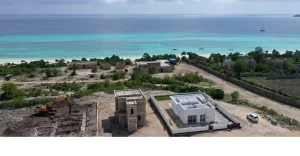Tanzania and Malawi are on the brink of a diplomatic standoff following Dodoma’s decision to commence the upgrade of Mbamba Bay Port, situated on the shores of Lake Malawi.
Lilongwe accuses Tanzania of initiating the project without consultation, given the contested nature of the port between the two nations.
Malawi has formally requested Tanzania to suspend the project, a move likely to escalate tensions between the neighbouring countries.
In a letter to Tanzanian authorities, the Government of Malawi asserts that proceeding with the project on Malawian territory without consent is both irregular and illegal.
Malawi insists that the project should cease until proper consultations are conducted and consent is obtained from the Malawian government.
“The Government of Malawi would like to express that embarking on such a project on Malawi’s territory without the country’s consent is irregular and illegal, and request that the project be halted until such necessary consultations and upon being given consent from the government of Malawi,” reads a letter, quoted by the Nation publication.
Furthermore, Malawi urges Tanzania to refrain from actions that could disrupt the dispute settlement process and jeopardise Malawi’s historical and legal rights to the entirety of Lake Malawi.
The Tanzania Port Authority (TPA) has already inked a $31.8 million construction deal with China’s Xiamen Ongoing Construction Group for the port, with a projected completion timeline of 24 months.
The unresolved boundary issue between the two nations has persisted for over a decade, with mediation efforts failing to yield conclusive results.
According to reports from the Nation publication, Malawi contends that the boundary should follow the shoreline of Lake Malawi, as stipulated in Article 1(2) of the 1890 Anglo-German Treaty.
Conversely, Tanzania maintains that the boundary is the median line of the lake, based on the principle of customary international law.
Source: allafrica.com














